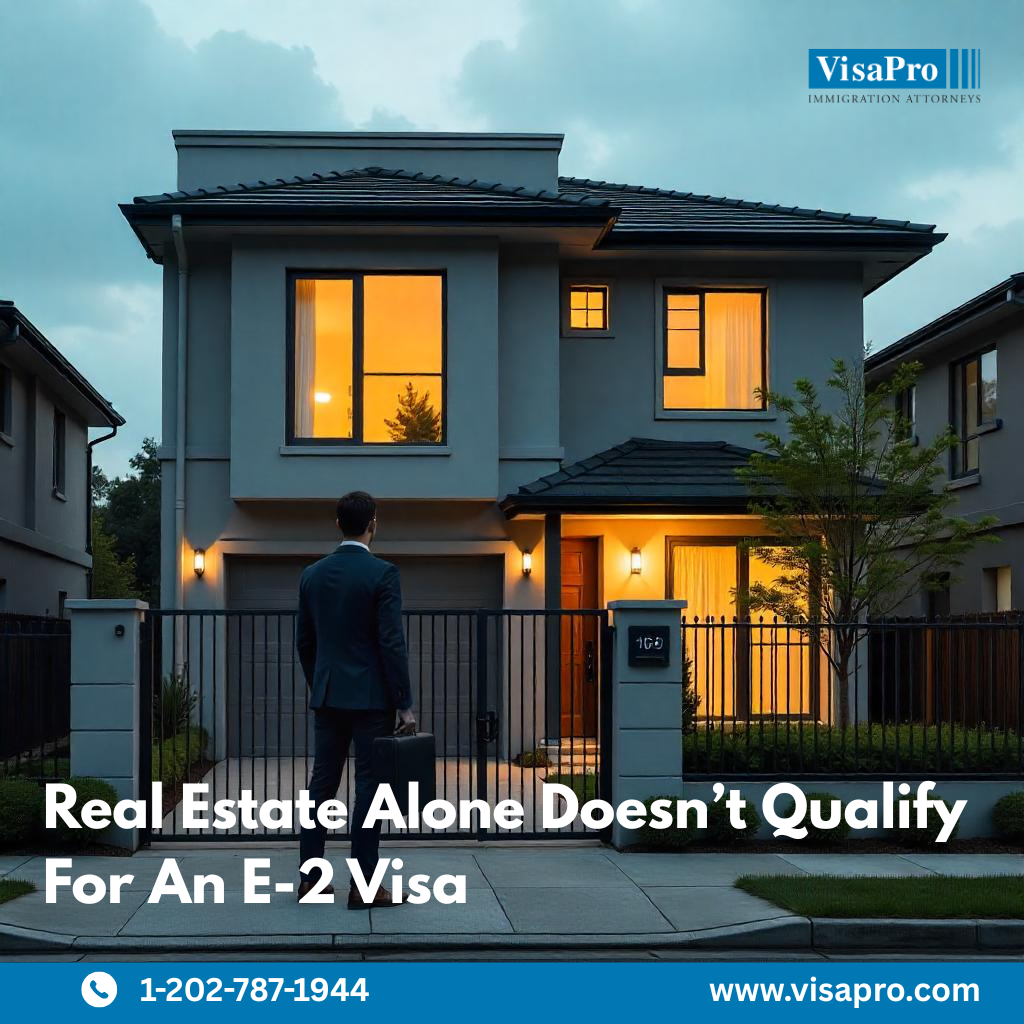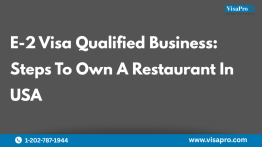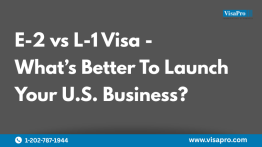Quick Summary:
You’re not alone if you’re wondering whether a $200K real estate investment, held in escrow and used to manage property for yourself and others, can get you an E-2 visa. The answer is yes, but only if the investment meets strict legal criteria. In this article, we’ll walk you through exactly what counts as a qualifying E-2 real estate investment and how to structure your plan to increase your chances of approval.
Navigating the E-2 Visa Path for Real Estate Entrepreneurs
Yes, real estate investors can qualify for an E-2 visa, but only when the investment is active, substantial, and meets the visa’s strict legal and operational requirements.
E-2 visas offer an attractive path for foreign nationals who want to enter the U.S. to develop and direct a commercial enterprise. But unlike some business visas, the E-2 visa does not allow for passive income or “safe” investments. Instead, U.S. immigration law demands that your funds be “at risk,” tied to a real business (not just property ownership), and capable of generating more than just a minimal living.
Let’s explore how to navigate these rules, step-by-step, and whether your proposed property investment and management plan can actually support a successful E-2 visa application.
What Counts As a Qualifying E-2 Investment?
The E-2 investment must be substantial, active, and at risk. Simply purchasing real estate is not enough unless it supports an operating business.
There’s a common misconception that purchasing property in the US, even expensive property, automatically qualifies as a substantial investment under the E-2 visa. That’s not true. Simply owning or passively collecting rent from a property doesn’t meet the criteria.
To qualify:
- Your $200K must be invested in a real, operating business, such as a property management company.
- The company must be active (e.g., managing rentals, hiring employees, generating service revenue).
- Funds must be “irrevocably committed”, typically released from escrow once the visa is issued.
- The business must be more than marginal. It should provide income beyond just your personal support or have a measurable economic impact.
Example:
If you create a U.S. LLC that provides property management services to other homeowners, including maintenance, tenant sourcing, landscaping, and bookkeeping, you’re building a real enterprise. Simply holding and renting out your own duplex would likely not qualify.
Tip:
Put together a 5-year business plan showing how your management company will grow, scale, and hire, starting with your own properties, then expanding to manage for others.
Can Escrow Funds Be Used for an E-2 Visa?
Yes, funds held in escrow can count as an E-2 investment, but only if they’re contractually committed and disbursed upon visa approval.
The U.S. government allows for E-2 funds to be placed in escrow, provided there’s a clear legal agreement showing that:
- The money will be automatically released upon E-2 visa approval, e.g. transferred into the business automatically or funds remitted to a seller automatically
- You won’t get the money back if the visa is denied without consequences (non-refundable costs are ideal).
- The funds are not sitting idle, they must be designated for specific business expenses (e.g., buying equipment, marketing, first year payroll).
Real Example:
A Canadian investor placed $150,000 in an attorney-controlled escrow account for a real estate management LLC. The escrow agreement stated that funds would be used to hire a team, purchase fleet vehicles, and lease office space, triggered only if the E-2 was approved. This structure satisfied USCIS.
Tip:
Work with an experienced immigration attorney to craft a visa-contingent escrow agreement that meets E-2 evidentiary standards.

Can a Real Estate Management Company Qualify for an E-2 Visa?
Yes, a real estate management company can qualify, if it actively provides services, generates revenue, and is not just managing your own investments.
This is where many E-2 hopefuls stumble. Passive real estate ownership, even if it’s a $1 million home, is not enough. You need to demonstrate an active role in business operations that:
- Offer services to third parties (e.g., landlords, HOAs, vacation rentals)
- Employ U.S. workers and independent contractors
- Require your direct oversight and day-to-day management
Scenario 1:
You and your partner co-own a Florida duplex and want to form an LLC to manage it. If that’s all you do– no other clients, no real employees– it’s unlikely to qualify.
Scenario 2:
You use your own properties as a starting point but build a real company that manages rentals for others, contracts handymen, markets on Airbnb, and plans to hire 2–3 employees within 12 months. This structure supports an E-2 case.
Checklist for E-2 Real Estate Investment Success:
- Services go beyond your own properties
- Active operations and daily management
- Clear revenue model from external clients
- Business growth plan and future hiring targets
- Capital at risk, not just sitting in a bank
How Much is Considered a “Substantial Investment”?
There’s no fixed dollar amount, but $200K is often sufficient if well-deployed in a low-cost service business like property management.
The “substantial” test under E-2 law is based on a proportionality rule:
- Lower-cost businesses (under $500K) require a higher percentage of personal investment (often over 80%).
- The investment must cover all startup and early operational costs.
- It must be sufficient to support the viability and future of the enterprise.
Example:
A $200K investment in a staffing-heavy management firm (with payroll, software, and overhead) would likely meet the substantiality test. That same amount used to buy a condo and wait for rent checks, probably not.
Tip:
Use your business plan to break down every dollar: staffing, marketing, legal fees, equipment, website, training, insurance, etc. Show how the capital is essential to operations.
What Role Do Employees Play in E-2 Visa Approval?
Hiring U.S. workers helps, but is not a legal requirement. The key is showing future economic impact and non-marginality.
Contrary to common belief, there’s no specific rule that you must have 5 employees within 2 years. However, USCIS and consular officers will evaluate:
- Your commitment to hiring (as laid out in your business plan)
- Job creation potential and timelines
- Whether the business supports more than just you and your family
Scenario:
You plan to hire a full-time assistant, contract out landscaping, and bring on a property manager by Year 2. This gradual but realistic hiring timeline can satisfy expectations, especially if you also serve multiple clients.
Myth Busted:
Hiring a gardener and handyman alone, even if you technically “employ” them, is not enough. The business must go beyond caretaking your own properties.
Is Property Ownership Alone Enough for an E-2 Visa?
No, E-2 visa rules do not support passive income from property ownership, even if the property is co-owned, rented, or appreciating.
Simply buying and renting property, even with a 50-50 partner, doesn’t constitute an “enterprise” under E-2 rules. USCIS looks for entrepreneurial activity, business risk, and commercial services.
If your only income is from long-term tenants and you don’t offer property management, concierge, or rental services, the visa will likely be denied.
Tip:
Transform your property investment into a commercial platform. For example:
- Convert your property into a vacation rental and offer full-service guest support
- Launch a co-hosting service for other investors
- Develop an online portal for property management clients
FAQ: Dependent H-4, L-2, and F-1 Visa Questions Answered
1.Can I use escrow funds for an E-2 visa real estate investment?
Yes, if the escrow agreement is conditional on visa approval and the funds are committed to specific business uses, USCIS can accept them as “at risk.” They must be released to the business upon approval.
2.Does an E-2 visa cover real estate ownership?
No, not by itself. The E-2 requires an active business. Real estate can be part of your business plan, but you must show you’re operating a service-based company like property management, not just holding assets.
3.Can a real estate management company qualify for an E-2 visa?
Yes, if it offers active services, has clients beyond yourself, generates income, and employs or intends to employ U.S. workers. This structure aligns well with E-2 visa property management criteria.
4.What is considered a substantial investment for E-2 visa real estate?
There’s no fixed amount, but generally $100K–$200K is considered substantial for real estate service businesses, especially if invested in staffing, equipment, marketing, and operations.
5.Can I get an E-2 visa if I co-own a property with a family member?
Co-ownership alone is not sufficient. You must be the primary investor and operator of the commercial enterprise. The investment must be in a business that is real, operating, and income-generating.
Still Unsure If Your Investment Qualifies? Let’s Talk.
Every E-2 case is different, and the way you structure your real estate and management plan could mean the difference between approval and denial. At VisaPro, we’ve helped hundreds of investors turn their business ideas into successful E-2 applications.
Contact us today for a free, no-obligation E-2 visa assessment and start your U.S. business journey with confidence.
What VisaPro Customers Are Saying
The US [B-1] Visa has always been a tough ride, and being denied a few times it makes it even worse. But thanks to VisaPro and their meticulous processing I was granted a Visa. I would like to thank you and all the people involved in making this a success. I would like to recommend VisaPro to all those who seek peace of mind and hassle free Visa processing.”




 Manas Bhat, Director Operations, First Houston Mortgage India
Manas Bhat, Director Operations, First Houston Mortgage India



